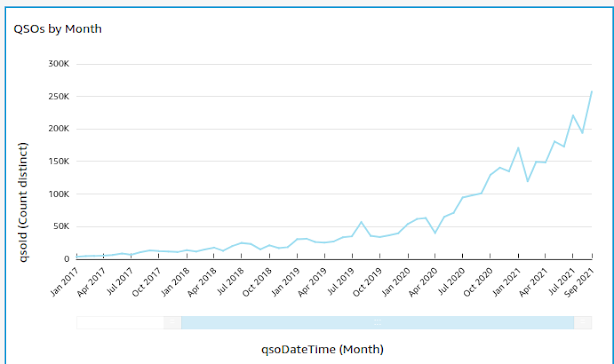Swing Station
In the United States, the president is elected every four years by the people. Sort of. In an arrangement that might look somewhat byzantine to an outsider, an arrangement that resulted from compromises first hammered out by thirteen states at the close of the eighteenth century, the people elect the president through the states in which they reside. In recent years, a pattern has emerged where some states vote reliably for the candidate of one party while a roughly equal number of states votes reliably for the candidate of the other party, leaving about a half dozen so-called swing states that might switch from election to election. Each of the two candidates knows that their base states are effectively a given, and devotes considerable campaign time and budget to the swing states.
And so the choice of who holds the highest office in what is arguably one of the most influential countries on earth comes down, in a way, to a few tens of thousands of voters in a handful of states. Whether this represents an opportunity for improvement, or whether it is an integral part of what has kept this particular democracy functioning so well for nearly two and a half centuries is a topic for another blog post. Actually, it's probably a topic for another blogger. OK, I'm not touching that one with a ten-foot pole, and this was probably a bad way to make my point.
Near the end of the film Bull Durham, a drunk Crash Davis (Kevin Costner) laments on the capricious nature of fate, noting that just one base hit per week is the difference between a batting average of .250 and a batting average of .300. "That means if you get just one extra flare a week, just one, a gork, a ground ball — a ground ball with eyes! — you get a dying quail, just one more dying quail a week and you’re in Yankee Stadium."
The point is that in a number of contexts—baseball, elections, maybe amateur radio contests—there are large outcomes that arise from a number of micro-outcomes. Many—often most—of those micro-outcomes are pretty reliable, leaving a smaller number of micro-outcomes that have extraordinary leverage over the larger outcome.
I am a casual contester. The probability that I'd ever win an amateur radio contest is only slightly better than the probability that I'll hit .300 in the Majors. That's not what I'm in it for. I do contests because I like making QSOs, and contests are where the people are. I do contests because they're a good opportunity to brush up on my CW skills. As a former SWL who went heavy on monitoring utility stations, I like the terse exchange of a contest QSO1. Contests are also a great way to log contacts in pursuit of WAS and DXCC awards.
I like to think that casual contesters can be the difference maker. I like to think that because that means you'll all be really looking forward to working me. In a typical contest, the big guns are all going to get a chance to work each other; that's all but a given. When a serious contester works a casual contester, they gain an advantage that all but maybe a dozen (in the case of a one-hour contest) of their competitors don't have.
I would never actively try to pick winners and losers (and realistically, I don't have that much leverage over the outcome), but there are a number of things that can increase the likelihood of a successful QSO. I can't necessarily speak for all casual contesters, and I don't claim to be an authority on good operating practice or contest strategy, but here, for what it's worth, are some of the things that I think help make for successful QSOs.
A good readable signal. It doesn't have to be a booming loud signal; a somewhat fainter signal can be a clue that you're some interesting distance away from my station. However, if I'm losing you in QSB, or you're wedged in with a bunch of QRM, I'm probably not going to take up your time on what will likely be a broken contact.
A willingness to QRS. The convention is that the QSO takes place at the slower operator's speed. I understand the need to make the most of a finite amount of time, but dialing back your keyer by even just a few WPM can say that you're just as interested in engaging in the QSO as you are in logging it.
A friendly demeanor. Not a deal breaker if you stick to the exchange script, but a GL or a 73 or an FB go a long way.
Clean keying. This is maybe the most important, but also the hardest one to talk about. I've made more flubs on my straight key than I'd really like to admit. I've flubbed my own call sign. Multiple times. What I am hoping for is that a QSO will involve an accurate exchange of information. If I consistently can't tell an H from a 5 or a 6 from a B, we're not accomplishing that.
I hope this is useful. Happy contesting, good DX, and I hope to see you on the bands.
1 That's not to say that I have anything against rag chewing. One of my very best radio friends, N6HCN, is an avid CW rag chewer. He and I have had some very pleasant conversations on the air, and my CW skills are the better for it.



Comments
Post a Comment